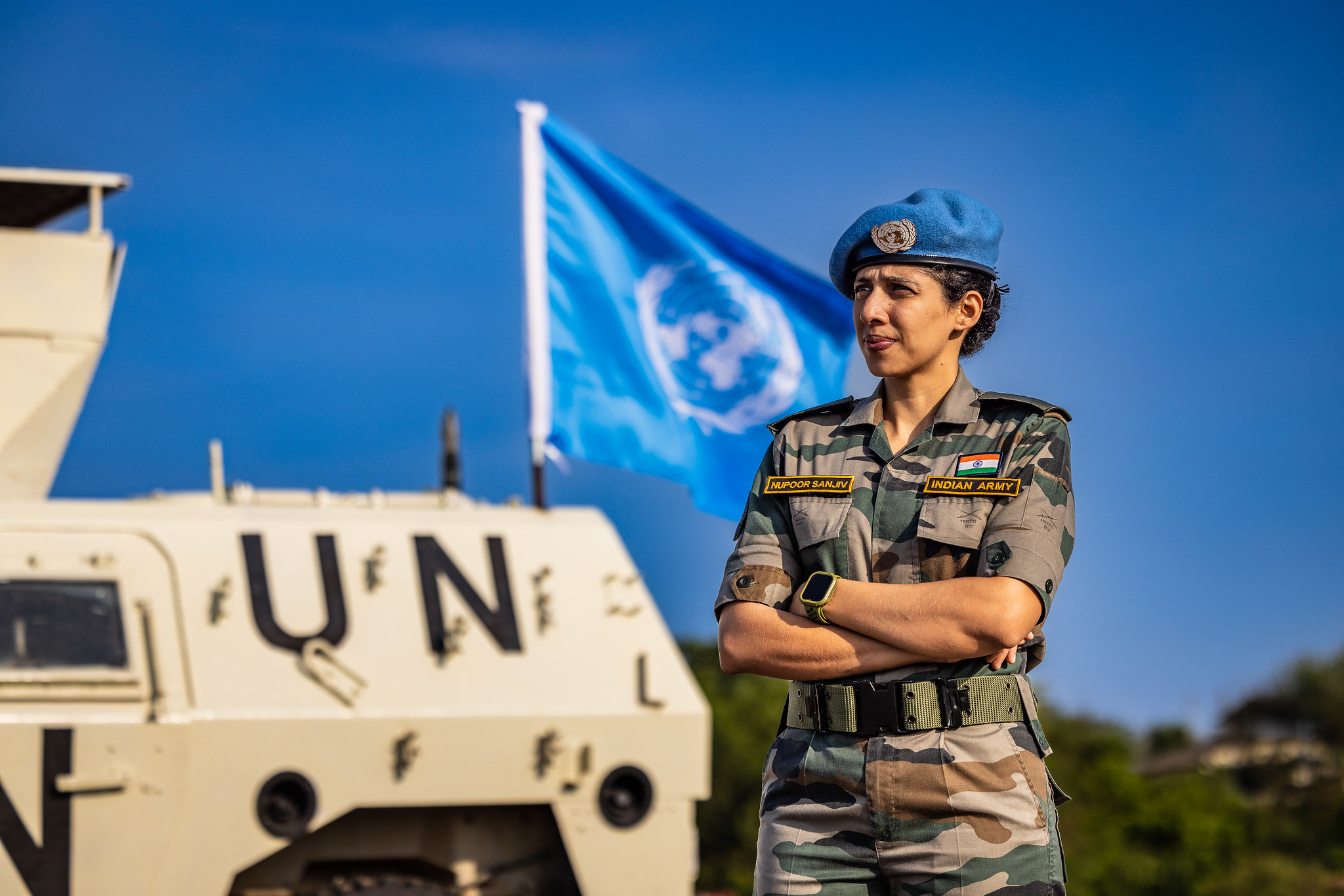by ZORANA ANTONIJEVIĆ
As we confront the resurgence of patriarchal trends, fundamentalism, and shrinking women’s rights globally, it’s time to strengthen feminist security studies and a policy approach rooted in women, peace, and security (WPS Agenda). It needs to reconceptualise focusing on the demands of the global women’s movement. These demands include redirecting financial resources from the military to health, social care, and education, stricter control of arms trade, and a focus on non-violent conflict resolution. Is the Feminist Foreign Policy answer to that?
When, in 2000, the United Nations Security Council unanimously passed Resolution 1325, the world witnessed a pivotal moment in the journey towards gender equality in international security and diplomacy. This milestone resulted from years of tenacious global women’s peace movement efforts. Its goal? To integrate gender equality into the fields of security, post-conflict recovery, and peace. It also broadened the discussion beyond the traditional realm of state security, acknowledging women’s essential role in conflict resolution and peace processes. How crucial it is showed a study of 164 peace agreements which proved that women’s participation in peace processes is linked to a 35 per cent increase in the probability of an agreement lasting at least 15 years (Stone 2014).
The UNSCR 1325 was just the beginning. It gave birth to the “Women, Peace, and Security” (WPS) Agenda, which now includes ten resolutions. This comprehensive agenda focuses on two key areas where UN member states are expected to make substantial progress – increasing women’s participation in conflict prevention, management, and peace negotiations and addressing violence against women and girls in conflict settings. However, as I wrote in my article in the Journal of Regional Security (Antonijević 2022), while UNSCR 1325 marked a great leap forward, the expected gender transformation in key areas of international security remains elusive (see more in Special Issue of the JRS on WPS). So, while the giggles that initially greeted this announcement may have faded, the question remains: Are WPS translating into tangible actions?
Fast forward more than twenty years, and it’s time to take stock of the impact of this groundbreaking resolution and its journey so far. But it’s not just about looking back; it’s about understanding how UNSCR 1325 connects to other emerging landscapes of gender and security topics (Jayakumar 2022), such as feminist foreign policy (FFP) and understanding care as a security issue, to name just two. These suggest a potential shift in global development, security and diplomacy, recognising the critical importance of a broader and more inclusive understanding of gender in international security studies.
Evolving from diverse origins and anchored to gender equality, human rights, and dismantling of existing power structures, feminist foreign policy (FFP) is an approach that prioritises peace, women’s rights, and environmental justice in a state’s interactions with other nations, movements and non-state actors (Foster and Markham 2023). FFP seeks to influence the financing of the gender equality agenda by grounding it on the demands of the feminist movement and the contexts in which they operate. It has already shown significant promise in that area. For example, the highest shares of official development assistance committed to gender equality in 2020-21 were reported by eight countries and the EU. Among these countries, three have FFP (Canada, Germany, France), and one is in the process of adoption (the Netherlands) (OECD 2023). In addition to financing gender equality, countries that embrace FFP (from Luxembourg to Liberia) are trying to reconceptualise global goods as being in the national interest and to redesign multilateralism by changing harmful gender norms in international fora. Amidst conflicts, pandemics, climate crises, and rising inequalities, FFP holds the potential to make a substantial impact on equality and justice worldwide.
Yet, FFP is not without critique. Many authors reflect on the gap between rhetoric and practice in FFP, or even more harshly, as a form of “pinkwashing”, where foreign and development policies’ measures are implemented without transforming gender norms and hierarchies. In practice, by focusing on the protection of women and girls in conflict (mainly on conflict-related sexual violence) (Castañeda, López and Myrttinen 2022) and the participation of women in diplomacy and international security, FFP has fallen short of addressing the root causes of gender-based discrimination, violence, and conflicts, such as entrenched patriarchal gender relations and militarism.
In a world where foreign policy decisions can have profound and far-reaching consequences, there is a growing need for a more thoughtful approach. Some argue that the answer is conceptualising care as a central security issue (Robinson 2008), thus seeing and revaluing care as fundamental for preserving peace and well-being, individual lives and the environment. Only then can FFP be the force behind re-examining power dynamics in which foreign policy decisions are made. And to address openly the linkages between militarism and patriarchy in reinforcing gender hierarchies.
Amid global security crisis, wars on almost every continent, and health and economic decline worldwide, what connects women, peace and security agenda with a feminist foreign policy twenty years later? I believe these are women’s everyday struggles and hope things will be different one day. That one day, values of care and peace will be at the heart of international security in a world where gender equality will not be an aspiration but a reality.
References
Antonijević, Zorana. 2022. “How we have won the battle and lost the peace: Women, Peace and Security Agenda twenty years after.” Journal of Regional Security 17(1): 5–24.
Castañeda, López Diana, and Myrttinen, Henri. 2022. “Looking Beyond Rape and War – The Need to Take Violence Prevention Seriously in Women, Peace and Security.” Journal of Regional Security 17 (1): 49–64.
Foster, Stephenie, and Susan A Markham. 2023. Feminist Foreign Policy in Theory and in Practice: An Introduction. London: Routledge.
Jayakumar, Kirthi. 2022. “The Women, Peace and Security Agenda Through a Queer Theory Lens.” Journal of Regional Security 17(1): 83–110.
OECD. 2023. Official development assistance for gender equality and women’s empowerment in 2020-21: A snapshot. https://www.oecd.org/dac/official-development-assistance-gender-equality.pdf.
Robinson, Fiona. 2008. “The Importance of Care in the Theory and Practice of Human Security.” Journal of International Political Theory 4(2): 167–188.
Stone, A. Laurel. 2014. “Women Transforming Conflict: A Quantitative Analysis of Female Peacemaking.” Working Paper, Seton Hall University, Available at http://dx.doi.org/10.2139/ssrn.2485242.
Dr Zorana Antonijevic has 20 years of experience in women’s empowerment programming and gender mainstreaming in post-conflict and post-socialist environments. She is experienced in working in various sectors and social contexts. Her expertise includes over 10-years of gender portfolio lead in the Organisation for Security and Cooperation in the Balkans region. Zorana’s work history proves a range of thematic areas rendering from security sector reform, women’s rights and empowerment initiatives and development, community involvement and working with men. Zorana’s professional and academic interests have centred on gender and intersectional inequalities in the security and care sector, critical studies of men and masculinities, social inclusion, gendered institutions, and gender mainstreaming in policies. She holds doctoral degree in gender studies from the University of Novi Sad and is an Independent Research Associate with experience in teaching as visiting lecturer at the Faculty of Political Science University of Belgrade master study programme International Security, course on Gender and Security.
You can also read: a special issue on “Women, Peace and Security Agenda twenty years after”, gust edited by Zorana Antonijević, in Journal of Regional Security 17 (1), 2021.
Photo credit: Gregorio Cunha/UNMISS. Flickr.







